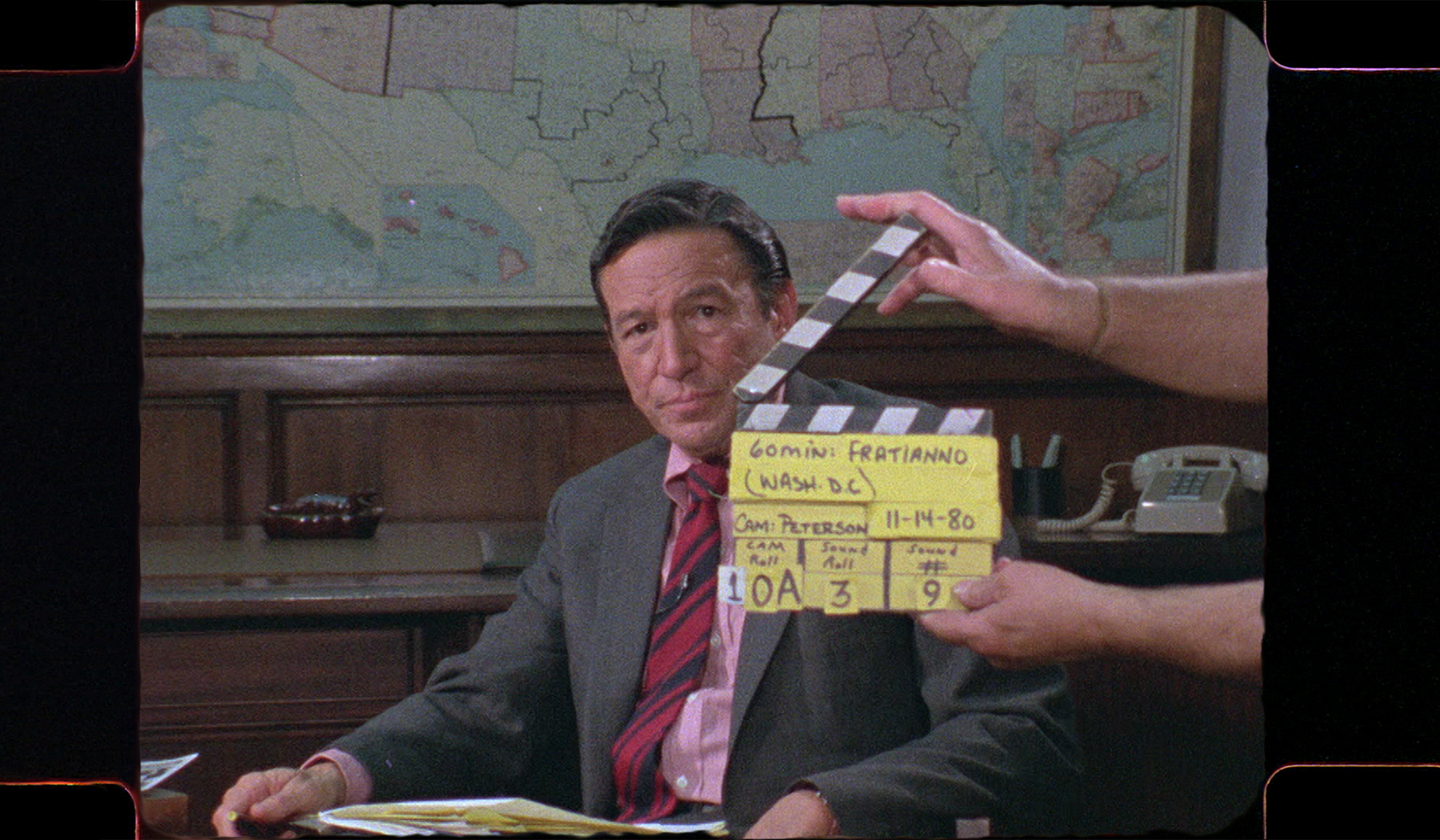
Mike Wallace Is Here profiles late CBS broadcaster Mike Wallace through archival footage while also displaying the importance of investigative journalism.
“A nation’s press is a good yardstick of a nation’s health,” Mike Wallace once recited.
Before the days of a gazillion cable news networks with niche programming, Wallace was the newsman who asked the hard-hitting questions. The sad reality is that this is seemingly a bygone era. Yet this film’s premiere at Sundance comes at a time when the press is being declared an enemy of the state by the man holding space in the White House. Whether he likes it or not, the press only trying to do their job. If you don’t want to see yourself plastered all over the news for something bad, maybe try to restrain yourself from doing anything bad.
Wallace was a pioneer in many ways. While he was willing to take any job on television, he later became the host of Night Beat. It was his interviewing style on Night Beat in which he found his voice. He would later go onto host The Mike Wallace Show from 1957-1960. It was this particular series that defined his interviewing style and it became a hit among viewers. He was the type of guy who was nosy, insistent, and absolutely would not be pushed aside. If Wallace had a reason for a question, he would certainly ask it. Without this series, the Brookline, Mass. native might have been unsuccessful in finding his voice as a newsman. This would lead to an opportunity to report for 60 Minutes on CBS. Wallace would sustain a 40-year on CBS from 1968-2008.
Nobody thought 60 Minutes would last. The series would go onto become one of the most-watched news shows on broadcast television. This became especially true during the Watergate scandal when Wallace used his Nixon connections to his advantage. Ironically, Nixon appeared in one of the first episodes, saying “I hope to restore respect to the presidency.” A later interview shows Donald Trump saying he would never go into politics.
The film manages to cover the libel lawsuit from General William Westmoreland vs. CBS and Mike Wallace. The lawsuit was eventually dropped. A few years later, another lawsuit would make major national news when Jeffrey Wigand decided to blow the whistle on Brown & Williamson. B&W filed suit and CBS refused to air the interview as a result. This led to Michael Mann’s film, The Insider, starring Al Pacino, Russell Crowe, and Christopher Plummer as Lowell Bergman, Wigand, and Wallace, respectively.
Director Avi Belkin has gone deep into the vault to give us this portrait of Mike Wallace. The film gives us footage that we’ve never seen before on 60 Minutes. This includes some outtakes from just trying to get the shot right. One of the things that the film does focus on is the death of son Peter Wallace and the impact it had on the newsman. We see just how hard his death affected Wallace, who was an absent father when his children were growing up.
An interview clip of The Eagleton Syndrome would segue into Wallace’s own battle with depression. Aside from his broadcasting skills, this is among one of the important things in the film. I say this because depression was typically seen as being a stigma. The reality is that so many people suffer from depression. The Westmoreland lawsuit was devastating for Wallace in so many regards because of this. Wallace openly talks about his thoughts on suicide and how ashamed he was for having depression.
Wallace wanted to be remembered for being a person who investigated, muck-racked, and asked the tough questions. Mike Wallace Is Here is a well-crafted documentary that also serves as a way to reinforce the importance of our nation’s journalists.
DIRECTOR: Avi Belkin
FEATURING: Mike Wallace, Morley Safer, Lesley Stahl, Steve Kroft, Barbara Walters, Vladimir Putin, Donald Trump, Richard Nixon, Manuel Noriega, Eleanor Roosevelt, Martin Luther King Jr., Malcolm X, Barbra Streisand, Johnny Carson, Ayatollah Khomeini




